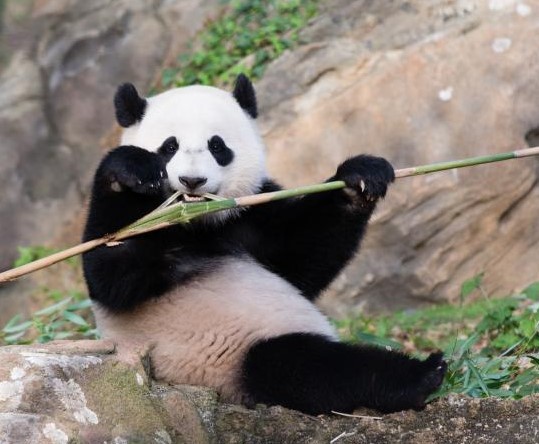Giant panda Bao Bao, born at the Smithsonian's National Zoo in Washington D.C. in Aug. 2013, will be moved this month to a new home in China as part of an agreement that aims to help in giant panda reproduction and health.
The panda's departure will be on Feb. 21, Tuesday, according to USA Today. FedEx will be flying Bao Bao to Chengdu, China.
The courier company has donated an aircraft dedicated to bringing pandas to and from China. In 2000 it transported Bao Bao's parents, Mei Xiang and Tian Tian, from China to the United States; and in 2010 his older brother Tai Shan, from the United States to China.
The crate she will be travelling in measures 55 inches wide, 50 inches tall and 75 inches long. For several months she had been acclimatized through an especially designed travel crate so she will be comfortable during her flight, the Zoo said.
Along with Bao Bao in her travel to China will be one keeper and one veterinarian who will attend to and monitor her during the entire trip and until she is handed to her new Chinese keepers. The Zoo said that in her flight she will have her favorite treats including bamboo, cooked sweet potatoes, apples and pears.
The China Wildlife Conservation Association (CWCA) and the Smithsonian's National Zoo and Conservation Biology Institute are participating in a cooperative breeding program that requires pandas born from Mei Xiang and Tian Tian to be sent to China before they reach the age of 4. Mei Xiang and Tian Tian are on loan to the U.S. from China since 2000.
In their new homes in China, the giant pandas will eventually participate in a breeding program when they have reached sexual maturity, usually at the age of 5 to 6 years.
Chinese scientists are helping to increase the number of giant pandas, which are reclassified from endangered to "vulnerable" in the wild by the International Union for Conservation of Nature. They are working toward the reintroduction of giant pandas, which are born in human care, to the wild.



























